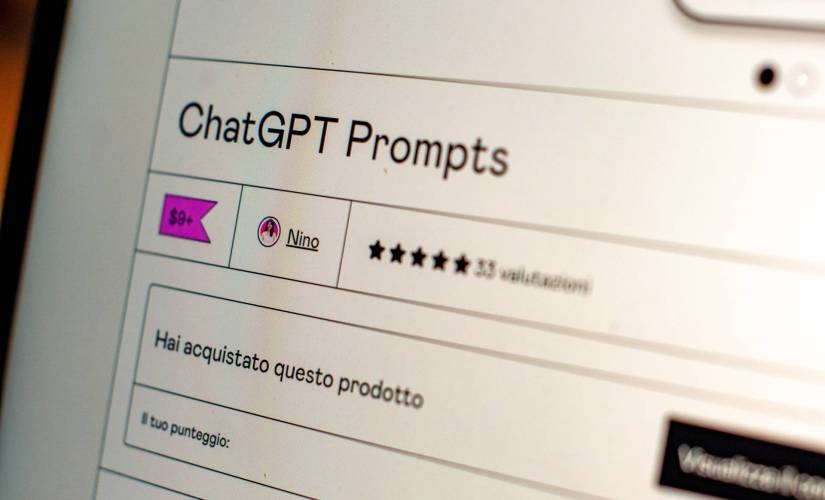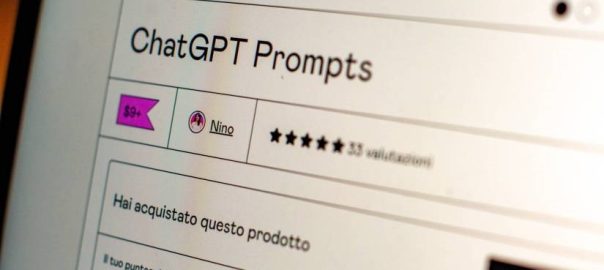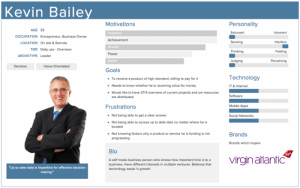How to turn ChatGPT into your own personal assistant

OpenAI, a leading artificial intelligence research organization, has recently announced the launch of a groundbreaking feature for its ChatGPT platform: custom instructions. This innovative capability allows users to provide specific prompts to the chatbot, eliminating the need to repeat the same instructions during each interaction. Through custom instructions, users can now effortlessly share contextual information, preferences, and constraints, enabling ChatGPT to generate more personalized and accurate responses. In this article, we will explore the benefits and functionality of OpenAI’s custom instructions, shedding light on how this feature enhances user experience and flexibility.
With the introduction of custom instructions, OpenAI empowers users to effortlessly set the context and preferences for their interactions with ChatGPT. While users can already specify these details during conversations with the chatbot, custom instructions offer a streamlined approach for frequently setting the same context. Whether it’s instructing ChatGPT to provide responses suitable for a fourth-grade math lesson or requesting code suggestions in a specific programming language, users can now easily communicate their requirements.
Custom instructions enable users to specify various parameters, allowing ChatGPT to generate responses tailored to their specific needs. For instance, an individual can indicate their family size, enabling ChatGPT to provide relevant advice on meal planning, grocery shopping, and vacation recommendations. Additionally, this feature seamlessly integrates with plugins, facilitating the suggestion of restaurants or flights based on the user’s location. By leveraging custom instructions, OpenAI ensures that ChatGPT delivers highly personalized and contextually relevant responses.
To ensure optimal performance, OpenAI utilizes the information provided through custom instructions to train its API models in adapting to different instructions. By analyzing and understanding user preferences, OpenAI fine-tunes the model’s responses, striking a balance between adhering to instructions and avoiding excessive conformity. This iterative learning process enables ChatGPT to continually improve its performance, delivering responses that align with user expectations.
OpenAI has made it simple for users to access and utilize custom instructions within the ChatGPT platform. Here’s how:
- Web: Users can try out this feature on the web by following these steps:
- Click on their name within the ChatGPT interface.
- Navigate to Settings > Beta features.
- Opt into Custom instructions.
- iOS: For users on iOS devices, the process is equally straightforward:
- Access the Settings menu within the ChatGPT app.
- Navigate to New Features.
- Turn on Custom Instructions.
Once users have enabled custom instructions, they can effortlessly provide prompts and specifications to ChatGPT, streamlining their interactions and enhancing the overall user experience. It is important to note that the character limit for custom instructions is set at 1,500 characters, ensuring concise and focused instructions.
OpenAI prioritizes user privacy and transparency. While the information provided through custom instructions is used to enhance model performance, OpenAI allows users to control their data and opt out of this setting if desired. By accessing their data control settings, users can manage their preferences and determine the extent to which their instructions contribute to model training and adaptation.
OpenAI has been actively testing the custom instructions feature with a select group of users. Gavriel Cohen, a consultant, shared insights on Twitter, highlighting the platform’s intuitive two-box system that allows users to specify their chat preferences. OpenAI aims to gather valuable feedback from users to further refine and improve the custom instructions feature.
OpenAI is committed to maintaining a safe and respectful environment within the ChatGPT platform. To ensure the safety of users, OpenAI utilizes its moderation API to scan customized instructions for any content that may be deemed unsafe or violate the company’s policies. In cases where instructions lead to potentially harmful or hateful responses, ChatGPT may refuse to save or ignore those instructions. This proactive approach ensures that users can confidently engage with ChatGPT while adhering to OpenAI’s stringent safety standards.
OpenAI has been consistently expanding the availability and functionality of the ChatGPT platform, catering to the needs of users worldwide. In May, OpenAI unveiled the ChatGPT app exclusively for U.S.-based users, providing a seamless and user-friendly interface for interacting with the chatbot. However, the company quickly expanded its availability to over 40 countries, enabling a broader audience to experience the power of ChatGPT. Moreover, OpenAI recently launched an iPad app with support for Siri and Shortcuts, further enhancing the versatility and accessibility of the platform. OpenAI continues to innovate, incorporating features such as web search integration through Bing, allowing users to retrieve information beyond ChatGPT’s knowledge base.
In summary, OpenAI’s introduction of custom instructions for ChatGPT represents a significant milestone in enhancing user experience and flexibility within the platform. By empowering users to set context, tailor responses, and streamline their interactions, OpenAI continues to revolutionize the capabilities of AI-driven conversational systems. With a commitment to user privacy, safety, and continuous improvement, OpenAI sets a new standard for AI-powered chatbots. As the adoption of AI technologies continues to grow, OpenAI’s custom instructions feature paves the way for more personalized and efficient interactions, making conversations with AI more seamless and intuitive than ever before.
First reported on TechCrunch
Frequently Asked Questions
Q. What are custom instructions in OpenAI’s ChatGPT platform?
Custom instructions allow users to provide specific prompts to ChatGPT, eliminating the need to repeat the same instructions during each interaction. Users can communicate their context, preferences, and constraints, enabling ChatGPT to generate more personalized and accurate responses.
Q. How do custom instructions enhance user experience?
Custom instructions streamline user interactions with ChatGPT by allowing them to set context and preferences easily. This feature enables tailored responses to specific needs and integrates with plugins to provide relevant suggestions based on the user’s requirements.
Q. How does OpenAI use custom instructions to train its models?
OpenAI utilizes the information from custom instructions to train its API models to adapt to different instructions. This iterative learning process improves the model’s performance in generating responses that align with user expectations.
Q. How can users enable custom instructions on the ChatGPT platform?
On the web, users can enable custom instructions by clicking on their name within the ChatGPT interface, navigating to Settings > Beta features, and opting into Custom instructions. For iOS users, they can access the feature by going to Settings within the ChatGPT app, selecting New Features, and turning on Custom Instructions.
Q. How does OpenAI prioritize user privacy and data control?
OpenAI allows users to control their data and opt out of custom instructions if desired. Users can manage their data control settings to determine the extent to which their instructions contribute to model training and adaptation.
Q. How does OpenAI ensure the safety of user interactions on ChatGPT?
To maintain a safe environment, OpenAI uses its moderation API to scan customized instructions for unsafe or policy-violating content. If instructions lead to potentially harmful or hateful responses, ChatGPT may refuse to save or ignore those instructions.
Q. How has OpenAI expanded the availability and functionality of the ChatGPT platform?
OpenAI launched the ChatGPT app exclusively for U.S.-based users, but quickly expanded its availability to over 40 countries. They also introduced an iPad app with support for Siri and Shortcuts, and integrated web search through Bing to provide users with a broader knowledge base.
Q. What are the benefits of using ChatGPT’s custom instructions for AI-driven conversational systems?
Custom instructions empower users to have more personalized and efficient interactions with AI chatbots. By setting context and preferences, users can tailor responses to their specific needs, creating a more seamless and intuitive conversation experience.
Featured Image Credit: Unsplash
The post How to turn ChatGPT into your own personal assistant appeared first on ReadWrite.
(17)
Report Post






